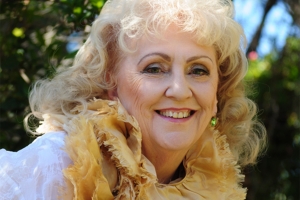Writers on Writing
Not being of an introspective temperament, nor an accomplished portraitist, I find it easier to talk about my milieu than myself. I spent my childhood in northern New South Wales. My mother’s people had come to farm in the district around the tum of the century, and most of her family had married, lived and died there. Though my father was a newcomer from the coast, he too had relatives in the town. For some years my younger brother and I were the babies of the kin group.
... (read more)When I read fiction I want the words to take my spirit into the places beneath the surface of the everyday world. I want the freshness of dreams to be again revealed to me. I want to know the loveliness and terror of what lies beyond the last star, of what lies sweetly cradled in the blood and juices of the human heart. I long to feel the shock when the tulip spikes the damp soil, feel the blissful impact of the truth, see the glint, the glimmer, the shimmer of another reality. When I read I wish to enjoy the company of the writer and the company of the people and the things in the story, to participate with all of them in the seductive mystery. I desire to be enchanted.
... (read more)Imagine me, myself, ten years on, a survivor of what is amusingly called ‘retirement’, though it will have been a matter of movement into rather than out of work. Let me, in short, give the four-day forecast; no weatherman will venture on the fifth, even to enforce the kind of superstition I am practising in these lines. Let us say the verbal magic works, and I reach seventy. What can I say now by way of analysing the character which I now confront in the time scale of then, across the years of future toil? Let me speak to that self in tones of restrained intimacy; restrained, because he frightens me a little.
... (read more)It is Sunday and that is all it is. I have just read the Australian. It is not Australian. It is The Cringe. I have struggled to like Phillip Adams for years; I liked him when he was Phillip Adams – I guess he did too. He worships Mammon when he once seemed to worship cries in the street and whispers from above. No God in him.
... (read more)In the small hours of Saturday, 31 August, after the wind-up dinner of the Association for the Study of Australian literature in Armidale, John Hanrahan told the writer not to forget the self-portrait he had promised for Australian Book Review. The writer, at that stage somewhere between exhaustion and tranquillity, assured him it would be done soon. Later he regretted what he’d said, because, at fifty-four, he didn’t like looking at himself in mirrors. Perhaps though, if he softened the lights just a little ...
... (read more)Self-Portrait in Various Prose Styles with Attendant Props and Dad
If we are not what we eat, and we are not, nor what we read, as we are also not, nevertheless a plate of latkes and a page of Saroyan do something to limn the portrait, as the crashing waves delineate the shoreline rock.
Naah.
Skip that.
... (read more)Promoting a book north of Brisbane can be a wary business, especially if the author’s car carries a Canberra number plate.
In this most nationalistic of states, he must first establish his credentials as a Queenslander. In my own case, born at Boonah near Ipswich and with many years’ experience in the north, these were impeccable.
... (read more)'Novelist' a transcript from 'The Fred Dagg Tapes' by John Clarke
Novelist Fred Dagg, the alter ego of New Zealand refugee John Clarke has quickly established an audience in Australia for his erratic political and social comments. In ‘Novelist’, transcribed here from his record of The Fred Dagg Tapes he offers advice to aspiring writers.
... (read more)


